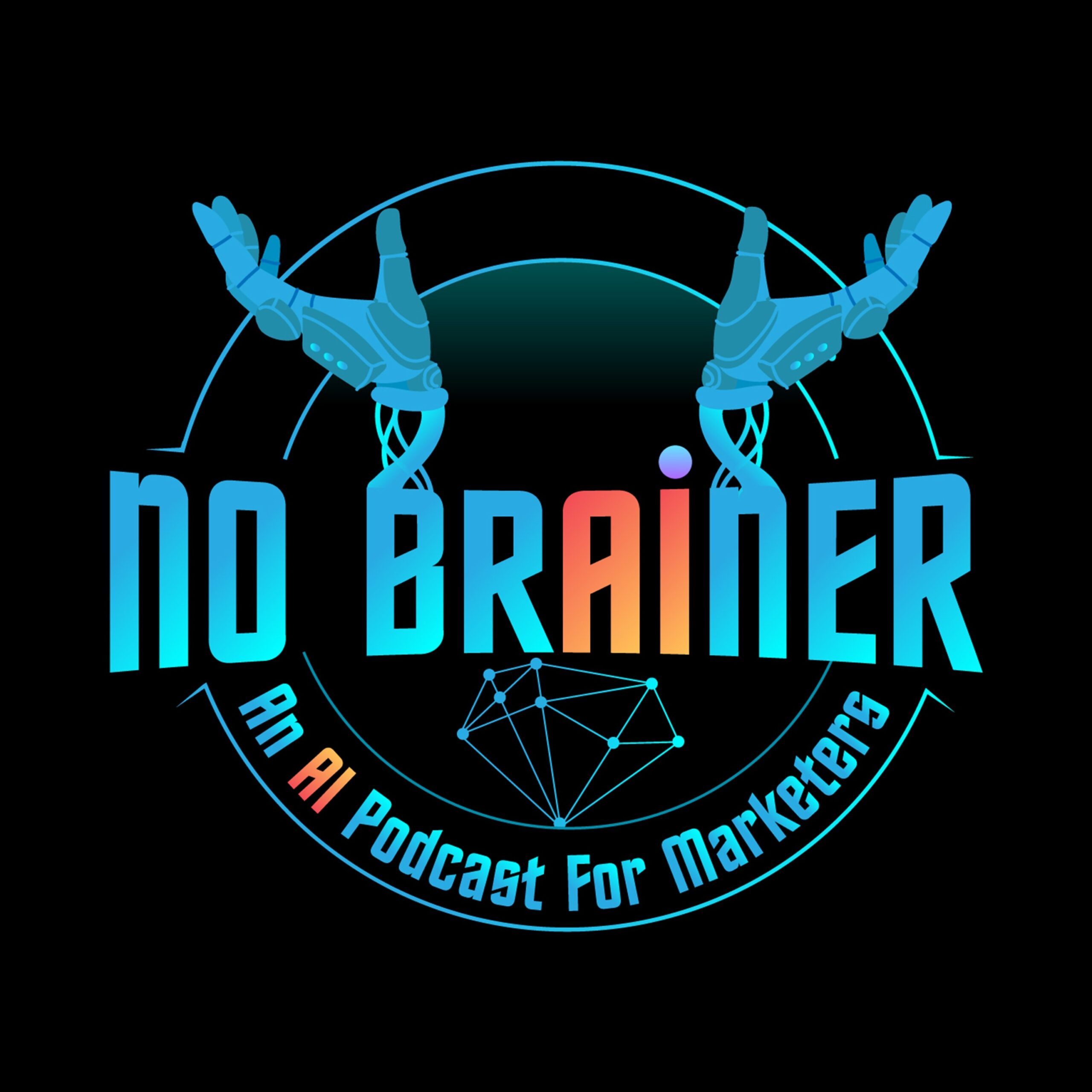
Share the goodness!
In this hard-hitting episode of No Brainer, Greg Verdino and Geoff Livingston talk about 10 common barriers to marketing AI adoption. They analyze why these issues crop up, their causes, and how they become big problems. Where possible, the two offer their thoughts on possible actions marketing leaders can take to overcome these obstacles and find success with AI.
What to Listen For: the 10 Barriers
00:00:00 Start
00:06:00 #1 Tactical Thinking – A lack of strategy and/or failing to tie AI to that core marketing or business strategy to achieve enterprise goals hurts adoption.
00:08:30 #2 Leadership Deficit – Lack of leadership vision, commitment, and support to implement AI internally – from responsibility hand-offs to a failure to sponsor AI as a necessary technological evolution at all levels – stymies adoption.
00:11:30 #3 Employee Resistance – Well-discussed fears of widespread job loss have had their impact, with internal mid-level managers openly and passively resisting adoption.
00:22:40 #4 General Market Confusion – Marketing leaders are confused by nonstop vendor hype and false promises, with some advocating for all-encompassing point solutions while others emphasize intelligent integration within the martech stack.
00:32:35 #5 The Data Problem – Marketing organizations struggle with data quality, quantity, access, etc. and often balk at the cost of getting their data house in order.
00:39:00 #6 The High Cost of AI – The high cost to deploy and maintain enterprise-grade solutions/use cases shocks many inexperienced marketing organizations who see the low cost of consumer point solutions as the accurate cost of AI.
00:46:50 #7 Quality Vendors/Tech Partners – The AI landscape is complex, making it challenging to differentiate genuine capabilities and select the right solution among numerous alternatives, including point solutions versus existing cloud services.
00:57:40 #8 Lack of Governance and Workflows – Marketing leaders often overlook the need to control AI systems and manage AI usage in their organizations, neglecting implications for risks. As a result, their departments lack end user guidelines and fail to consider how AI affects workflows.
01:02:18 #9 Talent Deficit – There’s a significant talent deficit in AI, with organizations struggling to hire and afford data scientists. Left to develop talent internally, leaders often neglect investing in the necessary training for their teams to use AI tools effectively and creatively.
01:10:50 #10 Lack of Named Case Studies – The AI industry lacks named case studies that provide tangible, measurable results (beyond the PR hit). Even if you acknowledge that it’s still early days (and that innovators may not want to share their secrets), this absence of results raises concerns about transparency and credibility.
As always, you can find the full show notes, including links to articles mentioned and other helpful resources at https://nobrainerpodcast.com.
Learn more about your ad choices. Visit megaphone.fm/adchoices
